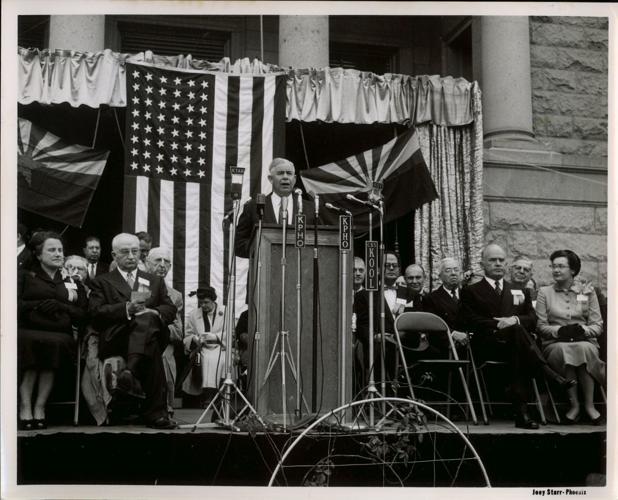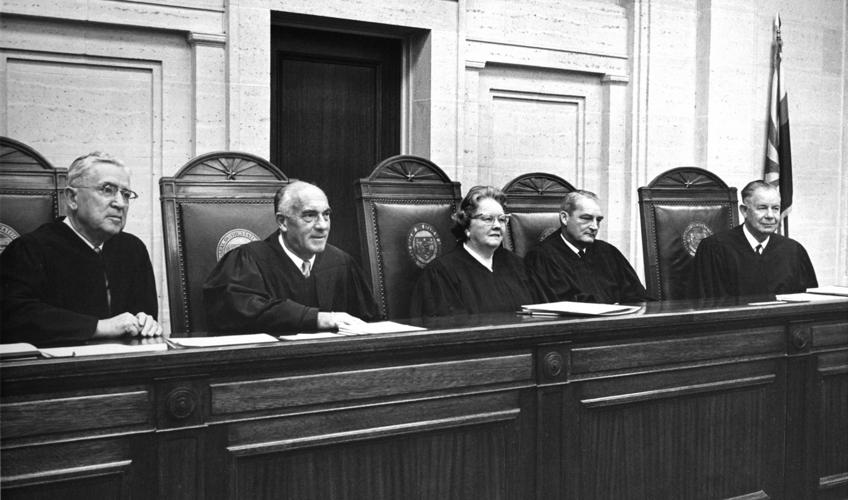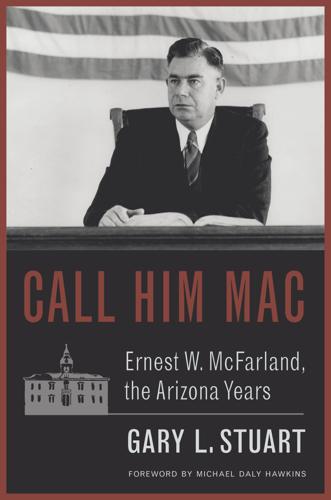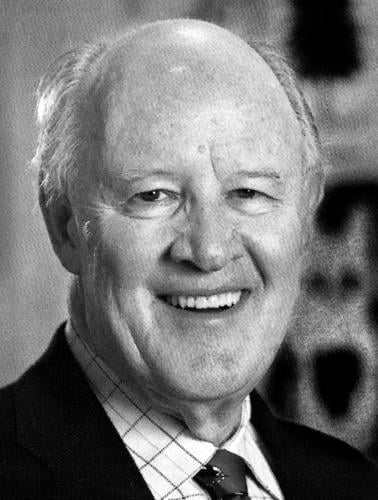How does one address a person, who at one time or another, was a U.S. senator, a governor and a state supreme court chief justice?
Chances are if you were to ask author Gary L. Stuart, he might just say, тCall Him Mac,т which is the title of his biography on Ernest W. McFarland, who has held all three positions.
McFarlandтs contributions to the country and УлшжжБВЅ are being felt to this day, from a veteran integrating back into civilian life after military service to turning the tap and getting a drink of water in central and Southern УлшжжБВЅ.
A good deal of Stuartтs book, тCall Him Mac: Ernest W. McFarland, the УлшжжБВЅ Years,т explores McFarlandтs early life and career, including the personal tragedies he experienced as well as the causes he championed. These tragedies helped shape the man and helped determine тhow Mac became Mac,т Stuart said.
People are also reading…
McFarland never lost sight of his values, which began in Oklahoma where he was born in 1894. He graduated from a state teacherтs college in 1914 and later the University of Oklahoma in 1917.
Stuart reveals to us that the young man who, after serving in the U.S. Navy during World War I, came to УлшжжБВЅ for its dry climate with $10 in his pocket, still recovering from his near-death experience with the Spanish influenza that nearly killed him.
McFarland found himself first working in a bank in Phoenix, then as a farmer and a teacher in rural УлшжжБВЅ. Realizing additional education would be the key to further success, and after graduating from Stanford University, he soon embarked on a career in law.
But it was rural УлшжжБВЅ and the relationships he formed there that shaped him, Stuart said.
McFarland pursued a new life as a rural judge and as time went on he became more political and began to understand the importance of name recognition.
He used to tell people, тCall me Mac,т Stuart said. McFarland wanted people to be comfortable with him, even as he rose in political office, he added.
Personally, he was tested again as he overcame personal tragedy, first losing his three children and then his wife in a 22-month period, Stuart said.
As U.S. senator, McFarland used his personal experience, recalling the struggle many fellow World War I veterans had as they tried to assimilate into society after that war. With a flooded labor market, many could not make ends meet. The Great Depression only made matters worse.
As the U.S. entered World War II, McFarland wanted to avoid the same problems by protecting returning veterans.
Working with the American Legion, he wrote legislation for the Servicemenтs Readjustment Act of 1944. It became known by its more popular name, the GI Bill.
McFarland went beyond what the American Legion sought, Stuart said. Where the Legion wanted to emphasize food, shelter and jobs for returning veterans, McFarlandтs focus included education and health care, Stuart said.
тMacтs draft had seven articles that he wrote by himself,т Stuart said.
Historically, a number of people have been cited as the Father of the GI Bill. But the phrase: тVictory has a hundred fathers and defeat is an orphan,т a quote made famous by President John F. Kennedy, could have applied to what may have been McFarlandтs most well-known piece of legislation when he was in the Senate.
Also, as a senator, and years later as governor, McFarland lobbied for the Central УлшжжБВЅ Project, bringing Colorado River water to the middle of the УлшжжБВЅ desert. He even successfully argued before the U.S. Supreme Court in 1962 over a water rights case that decided ownership of the precious Colorado River water.
As a member of the УлшжжБВЅ Supreme Court, he served a six-year term weighing in on the Miranda vs. УлшжжБВЅ case in 1965. Later, in 1968, he became the chief justice.
тHe was one of the most driven, compassionate, very, very complicated farmer-lawyer-judge and-politician personality that I could have imagined,т Stuart said.
He was driven, Stuart said, тto do something for as many people as he could, for as long as he could.т



















